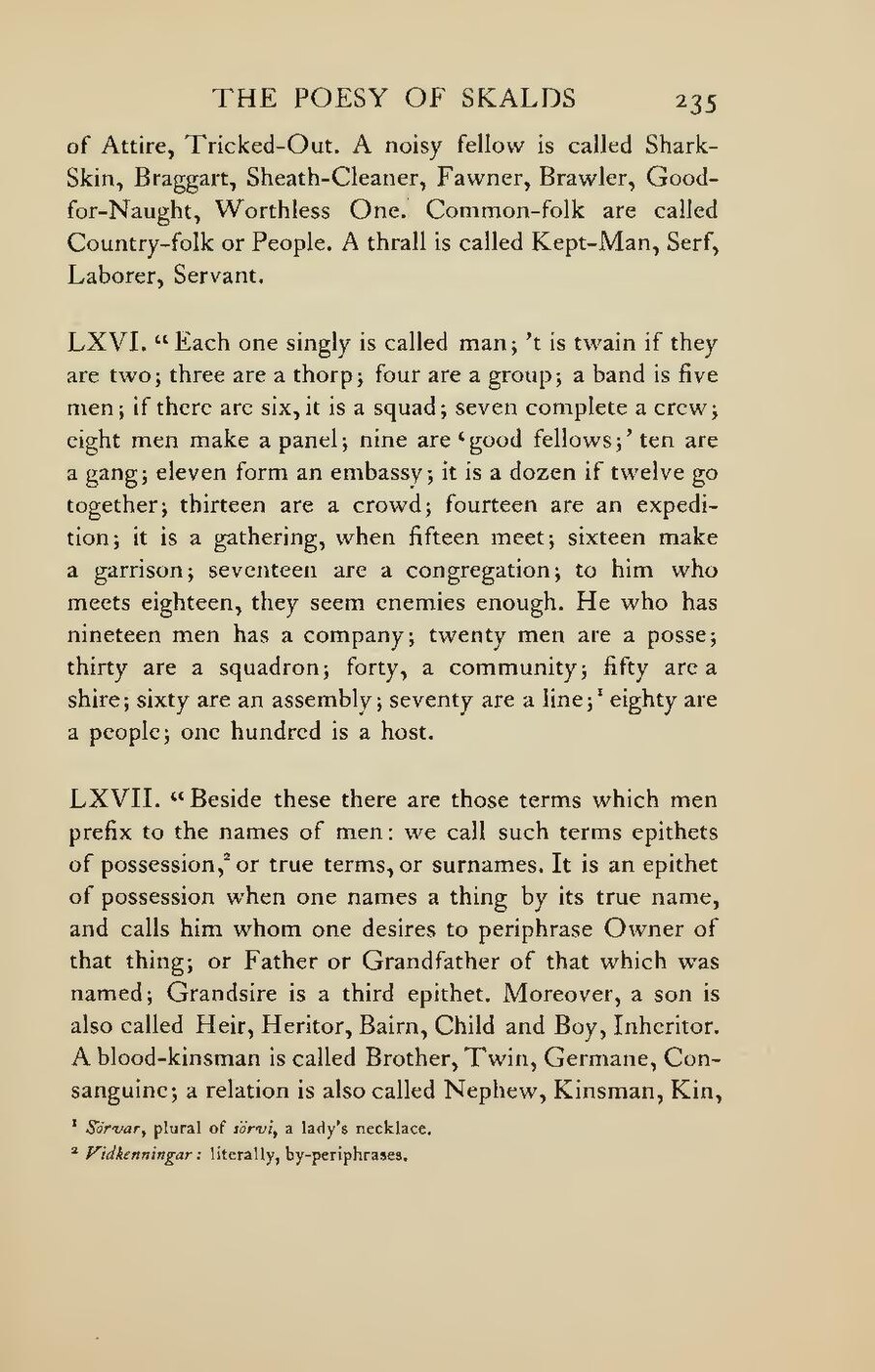of Attire, Tricked-Out. A noisy fellow is called Shark-Skin, Braggart, Sheath-Cleaner, Fawner, Brawler, Good-for-Naught, Worthless One. Common-folk are called Country-folk or People. A thrall is called Kept-Man, Serf, Laborer, Servant.
LXVI. "Each one singly is called man; 't is twain if they are two; three are a thorp; four are a group; a band is five men; if there are six, it is a squad; seven complete a crew; eight men make a panel; nine are 'good fellows;' ten are a gang; eleven form an embassy; it is a dozen if twelve go together; thirteen are a crowd; fourteen are an expedition; it is a gathering, when fifteen meet; sixteen make a garrison; seventeen are a congregation; to him who meets eighteen, they seem enemies enough. He who has nineteen men has a company; twenty men are a posse; thirty are a squadron; forty, a community; fifty are a shire; sixty are an assembly; seventy are a line;[1] eighty are a people; one hundred is a host.
LXVII. "Beside these there are those terms which men prefix to the names of men: we call such terms epithets of possession,[2] or true terms, or surnames. It is an epithet of possession when one names a thing by its true name, and calls him whom one desires to periphrase Owner of that thing; or Father or Grandfather of that which was named; Grandsire is a third epithet. Moreover, a son is also called Heir, Heritor, Bairn, Child and Boy, Inheritor. A blood-kinsman is called Brother, Twin, Germane, Consanguine; a relation is also called Nephew, Kinsman, Kin,
